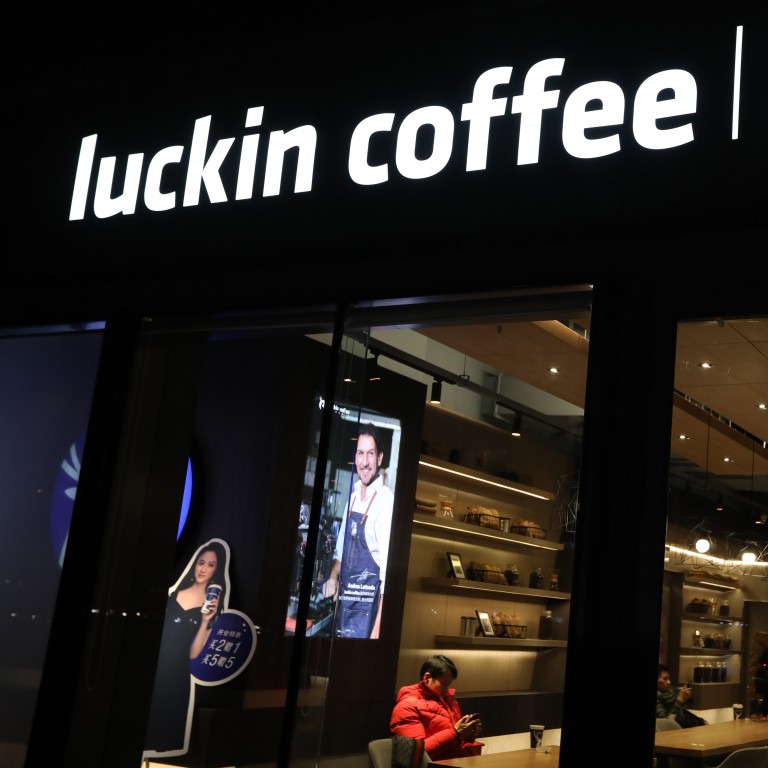
China’s Starbucks challenger Luckin Coffee vows to maintain subsidies even as losses mount
- The company has sold over 85 million cups of coffee and has developed a customer base of more than 12 million in less than a year since its soft launch
Chinese coffee chain operator Luckin Coffee has vowed to continue subsidising consumers despite bleeding “well over” 850 million yuan (US$123 million).
In a statement on Monday the company confirmed earlier Chinese media reports that it had lost more than that amount in the first three quarters of the year, adding that the full-year loss would be much larger.
“It is our established strategy that we will race to grab market share through subsidies,” the Xiamen-based start-up said. “[So far], the loss is in line with our expectation.”
Founded in 2017, Luckin has had an espresso-charged start in terms of store expansion and valuation, and is now seen as one of the up-and-coming challengers to Starbucks in China.
The company has sold over 85 million cups of coffee and has amassed a customer base of more than 12 million in less than a year since its soft launch, according to the statement. It has opened over 1,700 stores in 21 major cities across the country and claims “thorough” coverage of downtown Beijing and Shanghai, where there is essentially a Luckin cafe within a five-minute walk.
Meantime, the coffee chain’s valuation has jumped from US$1 billion in an A round of fundraising in July to US$2.2 billion after it completed a US$200 million B round earlier this month. The latest round was led by its existing investors including Singapore sovereign wealth fund GIC, China International Capital Corporation, Joy Capital and Centrium Capital.
The formula behind Luckin’s jump start into unicorn status and blanket coverage is not entirely new, with China’s on-demand internet service providers typically offering subsidies to quickly gain a critical mass of customers. The strategy was used by ride hailing giant Didi Chuxing during its market share fight with US-based Uber Technologies in 2016, and more recently by Meituan Dianping in its ongoing battle with Alibaba backed Ele.me in food delivery.
Luckin guarantees a delivery time of 18 minutes from the time customers in major cities place their order via their phone app, Luckin chief executive Qian Zhiya said in a July interview.
The company is planning a tie-up with on-demand giant Meituan for delivery services, according to people familiar with the matter. Starbucks and Ele.me reached a similar deal in August to help the Seattle-based coffee chain move sales online in China.
Alibaba is the parent company of the South China Morning Post.

